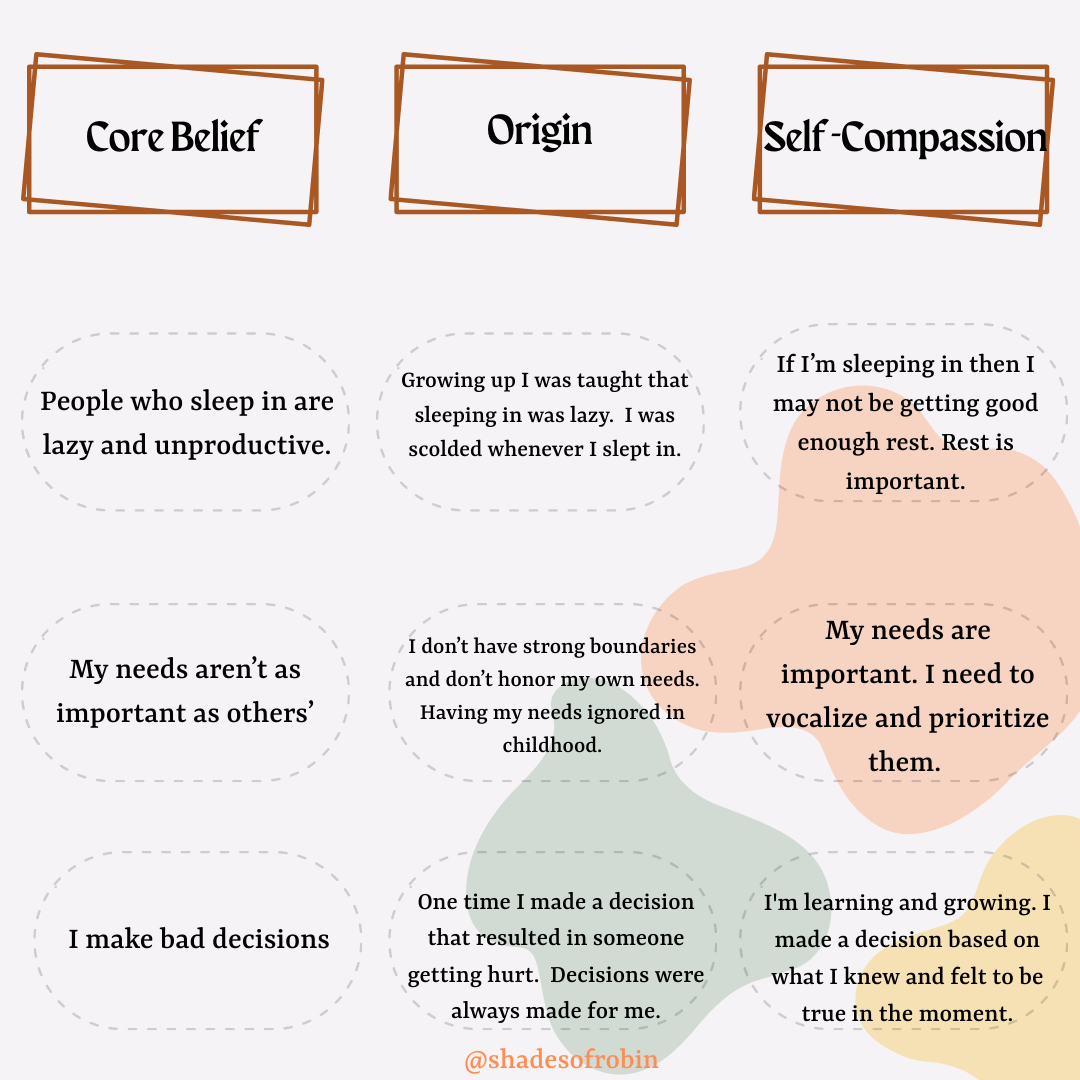The core is arguably the most essential part of just about everything. A core in a CPU is vital for receiving information and performing different operations. The earth’s core sustains its magnetic field. The core of most fruits and vegetables house the seeds. So the core is a pretty important function both figuratively and literally. If you find yourself having a hard time with balance in your life it may be time to check what’s at your core.
Core beliefs are our commitment to ideas about ourselves, other individuals, and the broader world. They guide how we treat ourselves and other people, usually acting as truths for the individual. These beliefs are at the center of our identity and etched into our foundation.
How do you discover what your core beliefs are?
Start here:
Be aware of your thinking patterns in different situations.
What do you believe about yourself? Both negative and positive.
Which habits do you view as healthy v. unhealthy? Why?
What do you believe about others? Is it the same for yourself?
Where are you dissatisfied with your life?
Do you believe you have the ability to change? Change your thinking, habits, etc.?
A few examples of limiting core beliefs.
There’s something wrong with me
I’m unlovable
I always have to be in control
I’m trapped
Other people have it so much easier than me
I should have been better
I’m difficult to get along with
It’s not safe to be vulnerable
My needs aren’t as important as others’
Core beliefs are typically hidden in plain sight but we tend to overlook them because they’re apart of our everyday thought process. Beliefs rooted in self-compassion and grace help project you forward by acknowledging your emotions while holding you accountable for your actions. Whereas beliefs rooted in shame, guilt, or lack* can cause you to remain stuck in spaces that no longer serves you. These are limiting core beliefs.* Your automatic or first thoughts about something may seem surface level but you may find they are your core beliefs.
Where do your core beliefs come from?
If you’ve read enough of my blogs you’ll notice a recurring theme about where most of our internal programming comes from. If you guessed childhood then you are correct! Although this may not be the case for some it’s helpful to recognize when and how these foundations were built so that you may go straight to the source for reprogramming. I use the term childhood as a general time period in reference to our social groups, authority figures, and the environment not just family. This is where we inherit the beliefs of our parents, family, religion, friends, and other institutions. As we grow older, change social groups or environments our core beliefs may begin to shift. Where you once believed that being vulnerable was something scary you may find now that your belief is you are in control of who you are vulnerable with based how safe you feel.
How to reprogram your core beliefs.
After you do the work to identify what your core beliefs are and their origin you can begin to rewire your thoughts surrounding the beliefs. It’s important to include self-compassion* in this step and may be helpful to talk to yourself as if you were a child or a close friend. We’re much harder on ourselves than we tend to be on others.
Ex.
Just like choosing to embrace your authentic-self, reprogramming your limiting beliefs isn’t a overnight job. Show yourself some compassion as you do the work to heal. Throughout your years you’ll go through seasons of learning/ unlearning and growth/stillness; it's all a part of the journey.
This is for me as much as it is for you;
I hope it resonates.
Remember...
Be gentle with yourself & keep evolving!
* Helpful definitions
Self-compassion is the ability to extend kindness, empathy, grace, and gentleness to one’s self.
2. A lack mentality is essentially the idea of scarcity.
A limiting core belief is a belief that negatively impacts the way you view yourself, situations, and other people.



